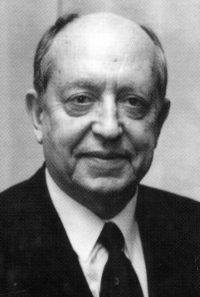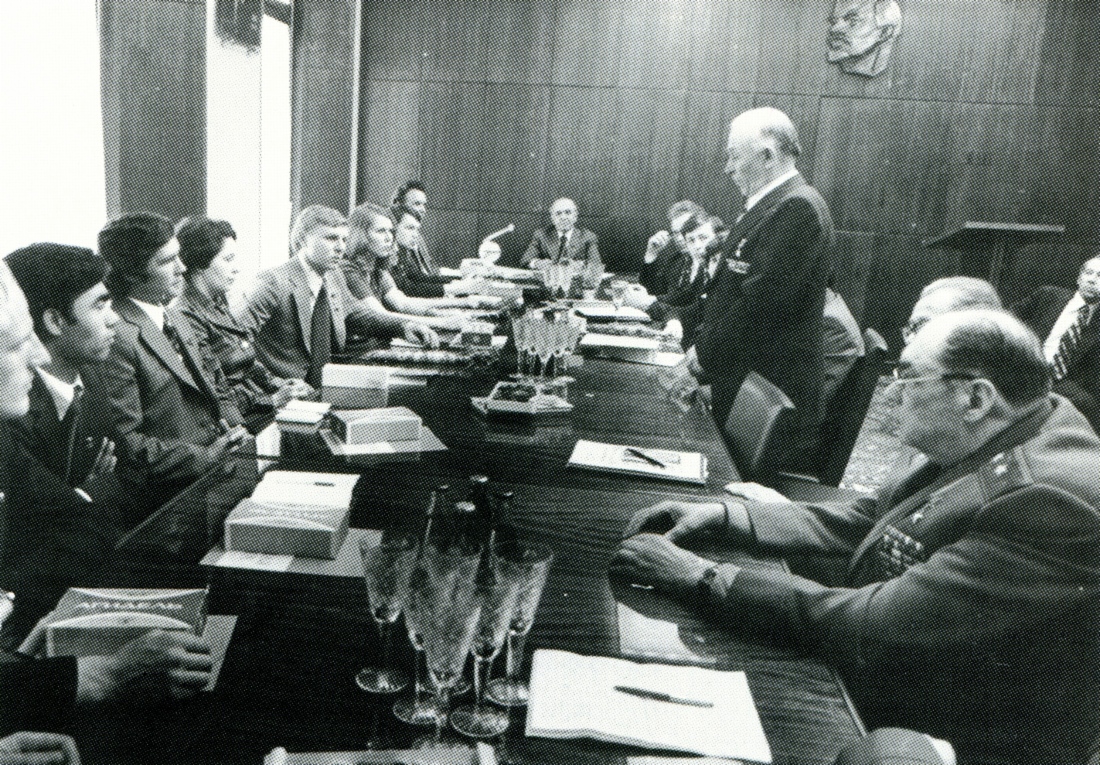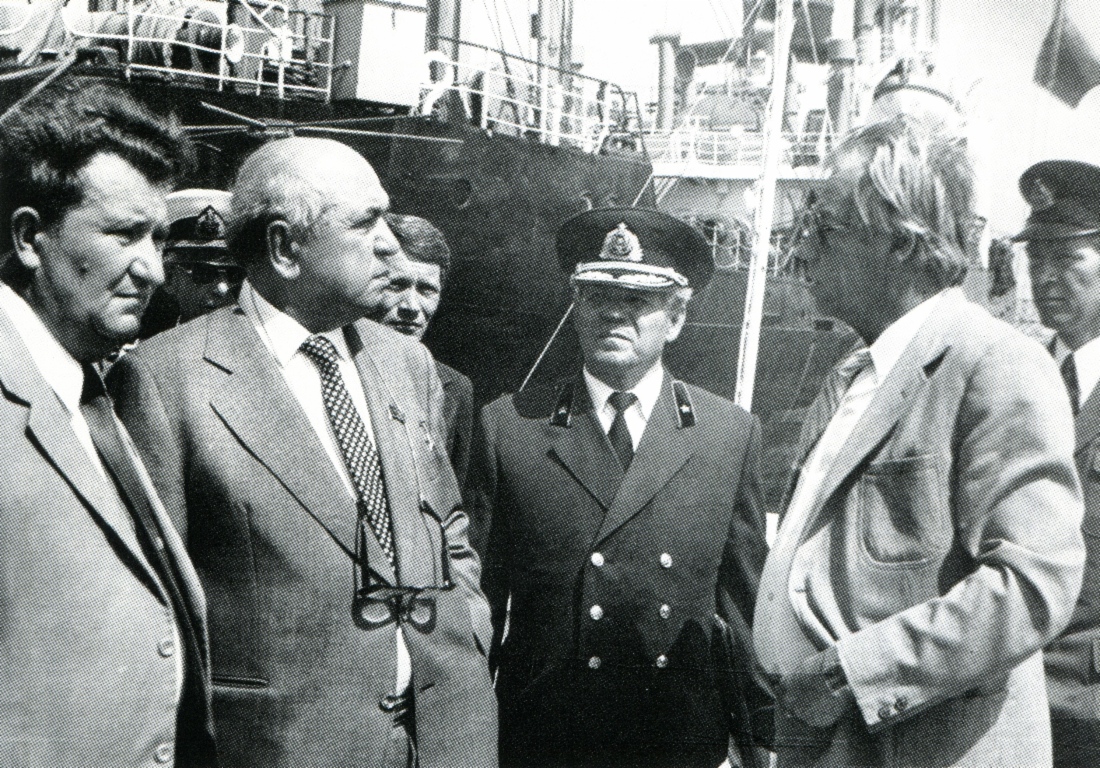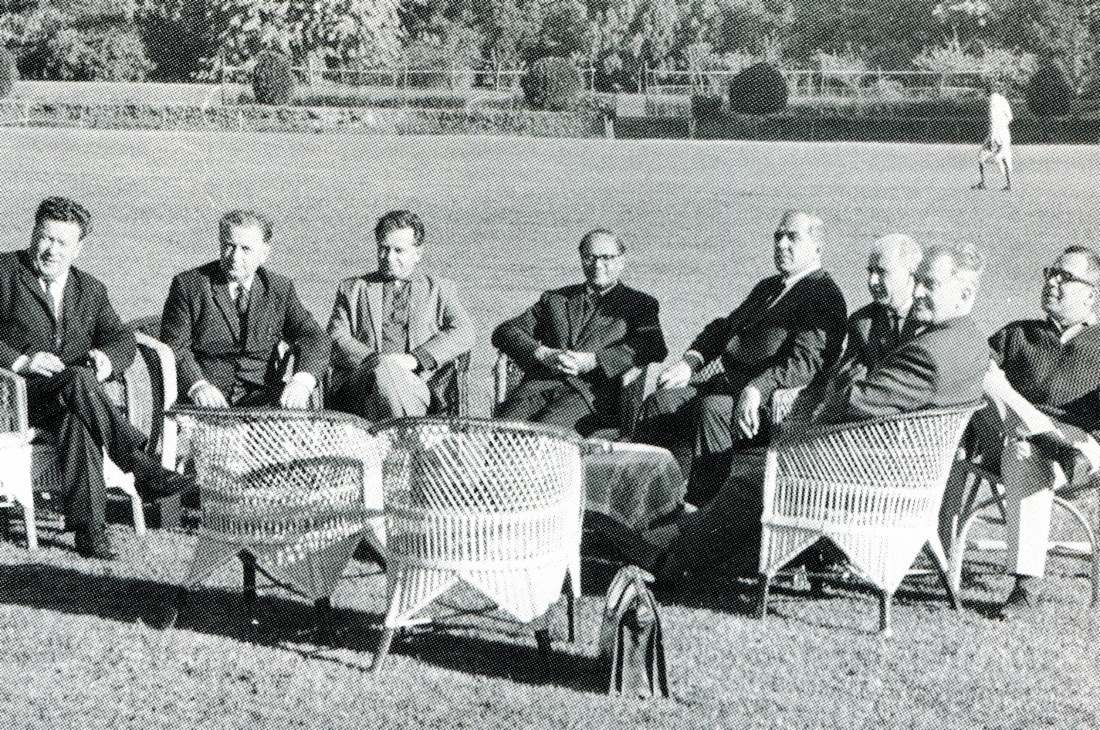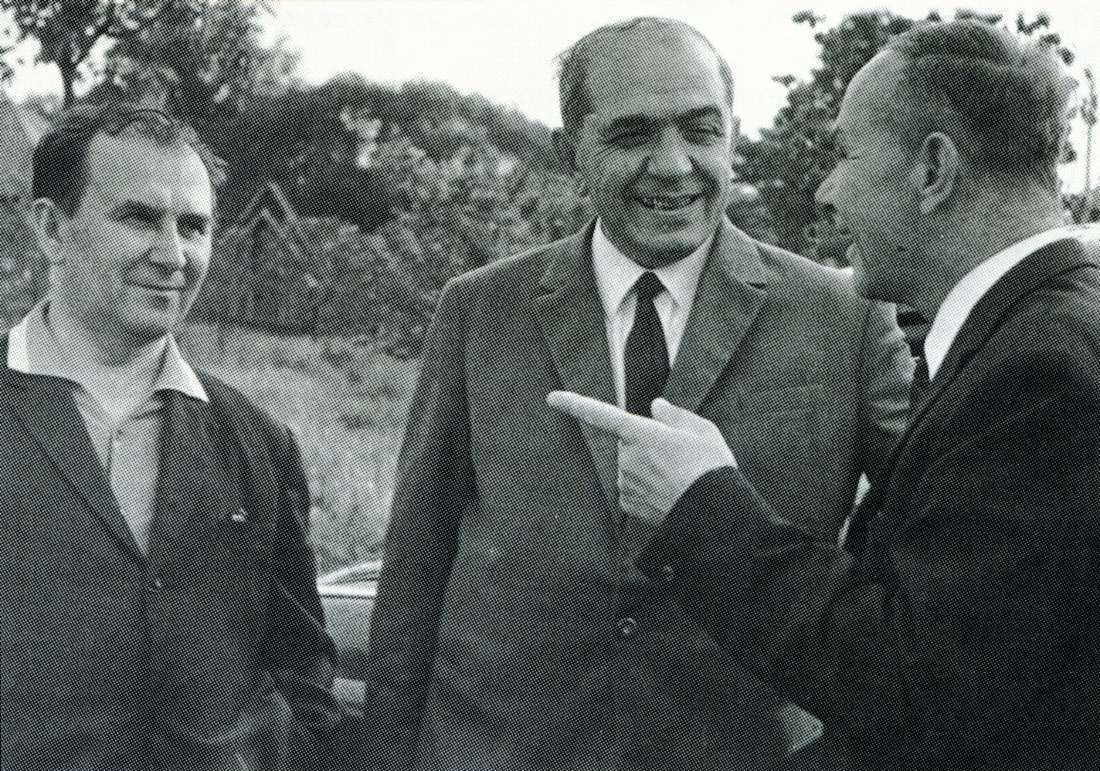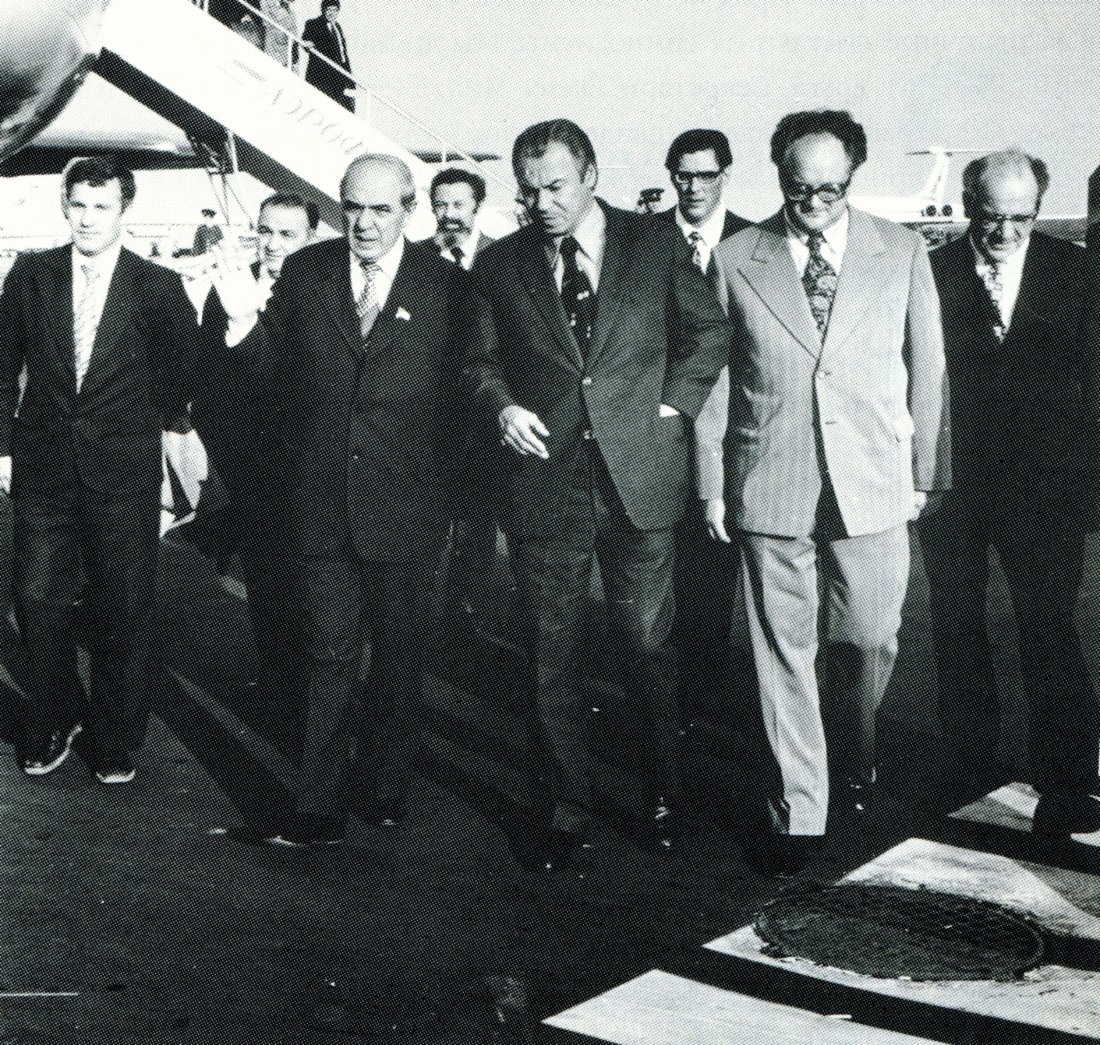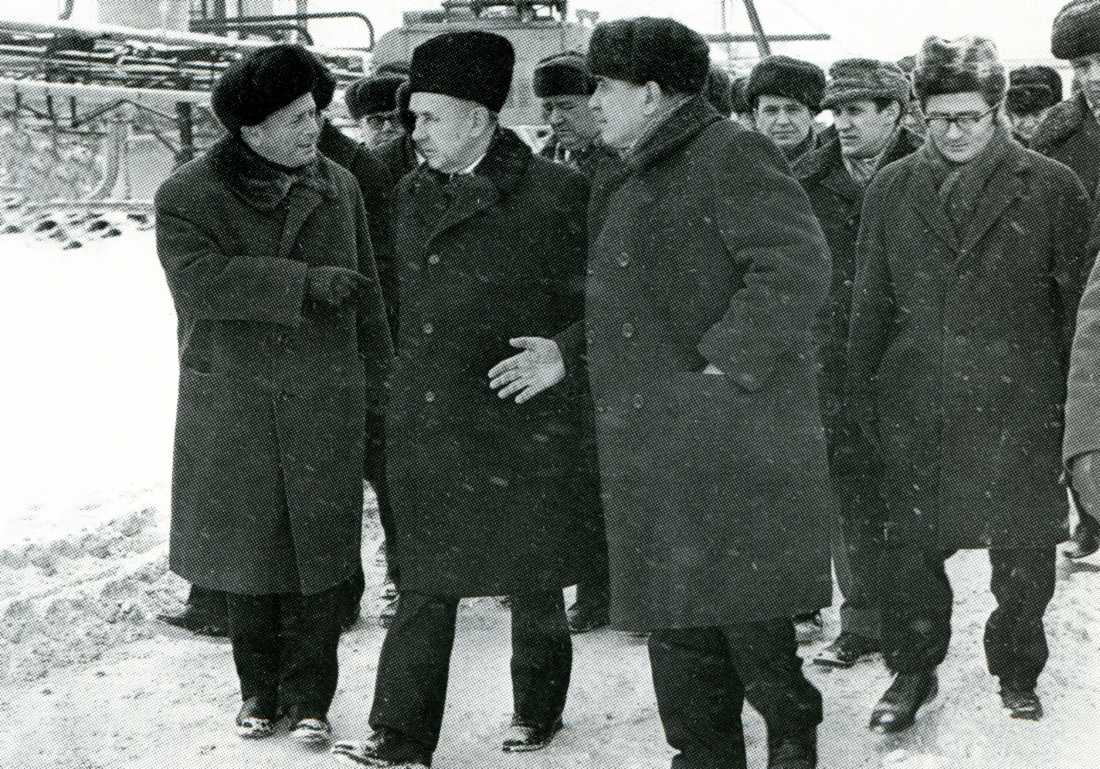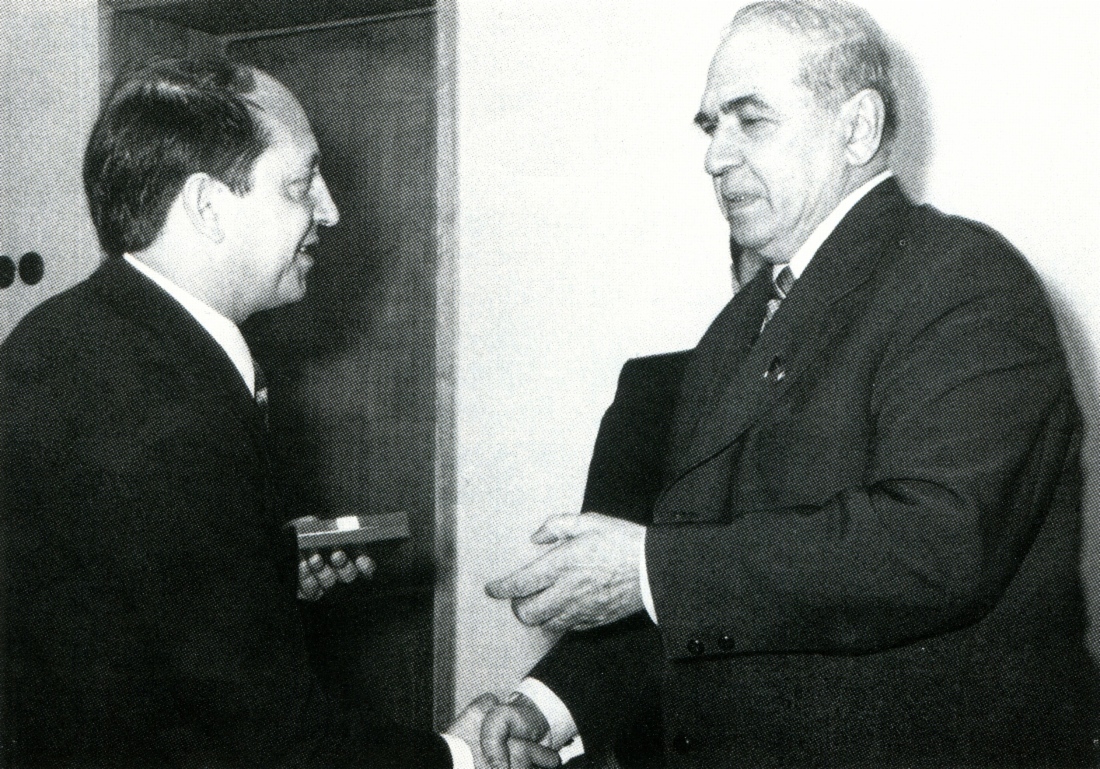Alexander Sedykh
From 1972 – Head of the Engineering Administration under the USSR Gas Industry Ministry; from 1989 – Member of the Management Committee, Head of the Department for Scientific and Technological Progress and Ecology at Gazprom State Gas Concern; in 1993 – Head of the Scientific and Technological Progress and Ecology Directorate at Gazprom.
“His lifetime efforts were based on the idea that people are the greatest asset in any community...”
Impact on other people’s lives
In our times, when a major shift in values is taking place, we see the significance of the political eras in our country’s history and the world of ethics from a new perspective. However, there are names that have taken an important place in our hearts and will be remembered as long as we live. Among those names I would like to mention Sabit Orudzhev.
Each of us – gas industry professionals and people of the new century – would be in a different place and would think differently if not for his profound impact on gas industry development from the 1970s to the early 1980s. For a little over eight years when Sabit Orudzhev was in charge of the country’s gas industry, annual gas production rose from 220 to nearly 450 billion cubic meters, and 53,000 kilometers of new gas trunklines were built. Today’s Joint Stock Company Gazprom owes a lot to this man, who was one of the principal institutors of the national gas industry.
He will never be forgotten because he knew to value employees for their hard work and dedication to the industry. He believed in his ministry’s employees, and the employees believed in him.
Focus on meeting targets
During his entire term as the Gas Industry Minister, Mr. Orudzhev gave the utmost priority to implementing the established industry development plan. I still remember the speech he delivered on December 31, 1972, before embarking on a new year of his work in the industry: “Let the last day of this year be the last day of the failure to meet the gas production plan.” We can now firmly say that Sabit Orudzhev fulfilled his duty brilliantly without plunging into pessimism in difficult times or exulting on successful days.
At work from first minute
On the next day after Mr. Orudzhev was appointed minister, he got a call from Alexey Kosygin, Chairman of the USSR Council of Ministers, and was harshly reprimanded for the shortage of gas supplies to one of the country’s most important enterprises. Orudzhev remarked that he had been on duty for less than a day and could not yet accept the criticism. Kosygin replied: “You are responsible for gas supply in the country from the very moment you have become minister.” Orudzhev later used this approach with all top officers. So he had to learn the ropes in the gas business right away.
High expectations and good judgment
Sabit Orudzhev was a tough and demanding boss... And yet he held no grudges against his subordinates after giving them a hard time for failing to meet their goals. Back in the winter of 1975, when the first train of the Orenburg gas chemical complex was already in operation, he once sent me to Orenburg as the head of an expert group with the task to substantiate an increase in working pressure in gas pipelines that connected the field to the gas processing plant. It was planned to enhance their productivity so as to boost the gas production rates. Before I left, he told me that he had talked this over with Alexey Kosygin and the decision had already been made. On arriving at the site, I found out that all of the experts strongly disagreed with this decision, claiming that higher pressure would cause stress in the pipe steel beyond the yield point, which could lead to hydrogen cracking and pipeline ruptures. As a result, gas production would drop instead of growing.
Other experts weigh in
When this was reported to Orudzhev, he got furious and warned me that we would not see eye to eye. A few days later, he invited other experts whom he knew well from the Oil Industry Ministry, hoping that they would support him. To his surprise, none of the six invited experts confirmed the feasibility of increasing the pressure, and Mr. Orudzhev was compelled to agree with them. Ever since this incident, he never reproached or disrespected me in any way.
Taking on responsibility
He never had the self-doubt of an aging minister. One day, on returning from vacation at the end of August, he found out that there was not enough gas stockpiled in UGS facilities by the autumn/winter season, which could compromise the reliability and sustainability of gas supplies within the country in the forthcoming winter. He was told that it was due to insufficient production from the gas fields that were already at maximum capacity. He immediately took on full responsibility for employing all possible advanced production technologies at the largest gas fields: Shatlykskoye, Orenburgskoye, Medvezhye, Vuktylskoye, etc., and managed to raise the total production level to provide the necessary gas volumes for injection into UGS facilities and preparing those facilities for autumn/winter operation.
Ventilation windows as political tool
It always bothered him to see ventilation windows open in residential buildings in winter. Once on a cold winter day, Alexey Kosygin came to the ministry at Orudzhev’s insistent invitation. At the meeting, Orudzhev asked Kosygin to come to the window and started pointing out open ventilation windows in a building across the street to gain his support for the energy saving policy.
Swift response
In the event of an accident that could disrupt gas supplies, he would fly right away to eliminate it. When informed that geologists had discovered a new gas field near Astrakhan and a test well had confirmed commercial gas inflow, he departed to Astrakhan on the next day to see it with his own eyes.
He promptly set up a group of experts with me in charge and sent us to Canada to learn about the production of sour gas, which is similar to gas from the Astrakhanskoye field. Two weeks later, he used the materials provided by the group to submit a draft of the first resolution of the USSR Government concerning the development of the Astrakhanskoye field and the construction of the Astrakhan gas chemical complex. The resolution was adopted by the USSR Council of Ministers.
One evening I got a phone call from Sabit Orudzhev telling me that I needed to go the Vnukovo Airport at 7 a.m. and fly to the city of Nikolaev to get insights into the work of a plant manufacturing marine gas turbine engines. The day before, we had submitted to him a note about the extremely high efficiency of using marine turbines in centrifugal blowers at compressor stations along with aircraft gas turbine engines. When filing the note, we thought that he would call a meeting on this matter, but he immediately told us to peruse everything in person. We departed to Odessa at 8 a.m. and travelled by a Volga car from Odessa to Nikolaev. On the same day, we returned to Moscow at about 10 p.m. Subsequently, the Kryvyi Rih and Ivano-Frankivsk plants were built at the proposal of the Gas Industry Ministry and the Shipbuilding Industry Ministry. The first plant manufactured marine turbines and the second one produced centrifugal blowers. It was decided to start producing gas compressor units using those products at the Sumy Machine Building Plant. All of this was achieved within two and a half years...
Always at work
He was always ready to dart off and deal with challenges related to the construction of the Orenburg gas chemical complex, drilling of wells and building of gas rigs at the Medvezhye field in the north of the Tyumen Region, or at the Shatlykskoye field in Turkmenistan. He insisted that Alexey Kosygin, Chairman of the USSR Council of Ministers, and other statesmen also visit these facilities…
His lifetime efforts were based on the idea that human resources are the greatest asset in any community, and therefore one of the main tasks he set before himself was to retain the best employees and ensure their professional development and improvement of their social and living conditions. He invested in his employees, in their training and development, by creating technical schools in the main gas production regions. To that end, a branch of the Gubkin Moscow Institute of the Petrochemical and Gas Industry was established in Orenburg, and the basic infrastructure was expanded in the Tyumen and Ukhta Industrial Institutes.
New vision
Sabit Orudzhev turned gas industry development into an innovative process focused on continuous technological upgrades, modernization of gas production, transmission and processing equipment, and improvement of well drilling techniques.
During his years as minister, the following institutions were re-established: the Soyuzgazavtomatika All-Union Research and Production Association in Moscow, the All-Union Institute for Gas Processing in Baku, the Turbogaz special-purpose design bureau in Kharkiv, the Soyuzgazavtomatika branch in Kharkiv, and the VNIIGAZ branch in Ukhta. The VNIIGAZ branch in Tyumen was transformed into a separate research institute.
Sabit Orudzhev will be remembered not only as a prominent and highly respected statesman, but also as an expert in the development of offshore hydrocarbon fields. It was Mr. Orudzhev who put forward the initiative to prepare the ministry for extensive offshore operations. He also created the Offshore Oil and Gas Fields Exploration and Development Head Office under the ministry in 1979. He made great efforts to set up production capacities to explore offshore fields and launch oil production in the Caspian, Barents and Black Seas. The 1988 discovery of Shtokman, the largest gas and condensate field in the Barents Sea, was to a great extent the result of his initiatives for the development of offshore hydrocarbon fields.

